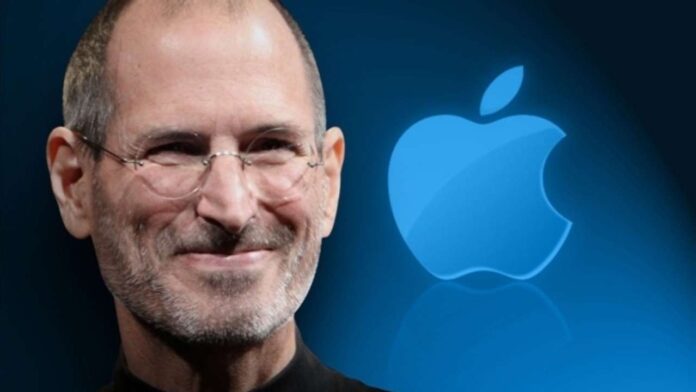In the annals of contemporary history, the name Steve Jobs is synonymous with innovation, vision, and the relentless pursuit of perfection. As the co-founder of Apple Inc., Jobs redefined the landscape of technology and business, leaving an indelible mark on the way we live, work, and communicate. In this extensive exploration of Jobs’ life and legacy, we traverse the various dimensions of his persona, seeking to unravel the intricacies that make him a maverick maestro of the modern era.
The Genesis of Genius
Steve Jobs’ journey is a narrative that begins with humble origins and evolves into a tale of groundbreaking achievements. Adopted at birth, Jobs grew up in Cupertino, California, a region that would later become synonymous with technological innovation. His early fascination with electronics, coupled with a keen interest in counterculture, set the stage for a unique blend of creativity and technical acumen.
As a college dropout, Jobs embarked on a journey that defied convention. Alongside Steve Wozniak, he co-founded Apple in 1976 in the garage of his parents’ home. This pivotal moment marked the genesis of a company that would go on to revolutionize the technology industry. Jobs’ ability to transform an idea into a tangible reality, coupled with Wozniak’s technical prowess, laid the foundation for what would become one of the most iconic companies in the world.
Pursuit of Perfection
Central to Steve Jobs’ legacy is his unyielding commitment to perfection. Jobs was not merely a CEO; he was an artisan who approached product design with the precision of a sculptor shaping marble. The sleek, minimalist design of Apple products was not just an aesthetic choice; it was a reflection of Jobs’ belief that form and function should seamlessly coalesce.
Jobs’ pursuit of perfection extended beyond the physical appearance of products. He demanded excellence at every stage of development, from the user interface to the packaging. This commitment to quality became a hallmark of the Apple brand and set a standard that competitors struggled to match. As I reflect on Jobs’ emphasis on perfection, I am compelled to question my own standards and strive for excellence in every endeavour.
The Art of Storytelling
Steve Jobs’ ability to captivate audiences went beyond product launches and keynote addresses; it was rooted in his mastery of storytelling. Jobs understood that products were not merely collections of features; they were stories waiting to be told. The narrative he wove around Apple’s products transformed them from commodities into cultural phenomena.
The iconic product launches, with Jobs as the charismatic storyteller, became cultural events. His storytelling prowess not only marketed products but also created an emotional connection between consumers and the Apple brand. This aspect of Jobs’ persona has influenced my own approach to communication. Whether conveying ideas in a professional setting or crafting a narrative in a personal context, I recognize the power of storytelling to engage, inspire, and create lasting impressions.
Thinking Different
At the core of Steve Jobs’ philosophy was the concept encapsulated in the famous “Think Different” campaign. Jobs believed in challenging the status quo, in questioning norms, and in pushing boundaries. This ethos permeated every aspect of Apple’s culture, from product design to corporate strategy. Jobs’ call to think differently was not a mere marketing slogan; it was a manifesto for innovation.
Jobs’ willingness to embrace the unconventional has influenced my own approach to problem-solving. In a world where conformity can stifle creativity, the ability to think differently becomes a powerful tool. Jobs’ legacy encourages me to view challenges not as insurmountable obstacles but as opportunities for innovation and growth. It is a reminder that true progress often emerges from the willingness to step outside the boundaries of the expected.
Resilience in the Face of Setbacks
Perhaps one of the most inspiring chapters of Steve Jobs’ life was his departure from and subsequent return to Apple. Faced with professional setbacks and challenges, Jobs demonstrated a remarkable capacity to learn from failure and adapt. His resilience in the face of adversity stands as a testament to the idea that setbacks are not the end of the road but rather stepping stones on the path to success.
Jobs’ departure from Apple in the mid-1980s marked a period of profound personal and professional transformation. His time away from the company allowed him to explore other ventures, such as founding NeXT and Pixar Animation Studios. These experiences shaped him into a more seasoned and visionary leader, illustrating the power of setbacks as catalysts for growth and reinvention.
In my own life, I have encountered moments of adversity and setbacks. Jobs’ story serves as a beacon of hope, a reminder that challenges are transient, and with resilience and determination, one can emerge stronger on the other side. The narrative of Jobs’ comeback is not just a story of professional redemption; it is a lesson in perseverance and the ability to turn setbacks into opportunities.
Impact on Technology and Culture
Steve Jobs’ influence extends far beyond the products he brought into the world. His vision and leadership transformed Apple into a cultural force that not only shaped the tech industry but also influenced broader aspects of society. The iPod changed the way we listen to music, the iPhone revolutionized communication, and the iPad redefined computing. Jobs did not merely predict the future; he shaped it.
The concept of the “Apple ecosystem” is a testament to Jobs’ holistic approach to technology. He envisioned a seamless integration of hardware, software, and services, creating an ecosystem that prioritized user experience. This approach has influenced the entire tech industry, leading competitors to rethink their strategies and prioritize the integration of products and services.
Furthermore, Jobs’ impact on popular culture is immeasurable. The iconic white earbuds synonymous with the iPod, the silhouette advertisements, and the simple yet distinctive Apple logo became cultural symbols. Apple’s retail stores, designed with meticulous attention to detail, transformed the consumer experience. Jobs’ influence on design, both in technology and retail, has permeated various aspects of modern life.
The Maverick Maestro’s Legacy in Leadership
Steve Jobs was not just a technologist; he was a leader who reshaped the paradigm of corporate leadership. His management style, characterized by a combination of charisma, demanding standards, and an unapologetic pursuit of excellence, set him apart in the business world. Jobs was known for his ability to inspire and motivate teams to achieve greatness.
The concept of the “reality distortion field” is often associated with Jobs’ leadership style. This term, coined by Apple employees, refers to Jobs’ ability to convince himself and others to believe almost anything with a mix of charm, charisma, and persuasion. While the term may carry a certain mystique, it underscores Jobs’ unparalleled ability to envision and manifest the seemingly impossible.
Jobs’ leadership style has spurred discussions and analyses in countless business schools and leadership seminars. His ability to blend intuition with data, to balance innovation with practicality, and to foster a culture of creativity has become a model for aspiring leaders. As I contemplate my own leadership journey, I find inspiration in Jobs’ ability to lead with conviction, to challenge conventional thinking, and to create an environment where innovation thrives.
Lessons from Stanford
In June 2005, Steve Jobs delivered a commencement address at Stanford University that has since become legendary. Titled “Stay Hungry, Stay Foolish,” the speech encapsulated Jobs’ life philosophy and offered profound insights into the nature of success, failure, and the pursuit of passion.
In the address, Jobs shared three stories from his life that encapsulated lessons he had learned. The first was about connecting the dots, highlighting the importance of trusting that the dots will connect in the future. The second story emphasized love and loss, reminding the audience that finding what one loves is as important as avoiding settling for less. The third story focused on death, serving as a poignant reminder that time is limited and should not be wasted living someone else’s life.
These lessons from the Stanford address have resonated with me on a personal level. The idea of connecting the dots, of trusting the journey even when it seems uncertain, has provided solace during moments of ambiguity. Jobs’ emphasis on passion and the pursuit of one’s dreams has served as a constant reminder to seek fulfilment in every endeavour. Moreover, his reflection on mortality has underscored the urgency of living authentically and with purpose.
A Glimpse into Jobs’ Charitable Initiatives
While Steve Jobs was not traditionally associated with extensive philanthropy during his lifetime, there were glimpses of his charitable inclinations. Jobs believed in making a difference, not only through his products but also through initiatives that aligned with his values. One notable example is the (Product) RED partnership, which aimed to combat HIV/AIDS in Africa.
The (Product) RED initiative involved the creation of special edition iPods and other Apple products, with a portion of the sales going towards the fight against AIDS. This collaboration highlighted Jobs’ belief in the power of business to drive positive change. Although Jobs’ philanthropic activities were not as publicized as those of some of his contemporaries, they reflected a commitment to leveraging resources for social impact.
The Complex Legacy of Steve Jobs
The legacy of Steve Jobs is as complex as the man himself. While celebrated for his visionary contributions to technology, design, and business, Jobs was not without his controversies. His management style, characterized by intense scrutiny and demanding standards, sometimes bordered on the abrasive. The secrecy surrounding Apple’s product development, while contributing to the mystique of the brand, also fuelled criticisms of a lack of transparency.
Jobs’ interactions with colleagues and employees were marked by a combination of inspiration and intensity. While he could be a charismatic motivator, his uncompromising pursuit of perfection sometimes came at the cost of personal relationships. The “reality distortion field” that surrounded him, while a testament to his visionary thinking, also led to challenges in managing expectations and timelines.
Furthermore, Jobs’ approach to competition was characterized by a fierce determination to protect Apple’s innovations. This led to legal battles and controversies, such as the high-profile litigation against Samsung for alleged patent infringement. While these actions were in line with Jobs’ commitment to protecting intellectual property, they also added layers of complexity to his legacy.
As we examine Jobs’ legacy, it’s essential to acknowledge the dichotomy between the mythos and the man. Jobs was a visionary, a pioneer, and a trailblazer who shaped the course of technological history. Simultaneously, he was a human being with flaws and complexities, navigating the challenges of leadership and innovation on a global stage.
The Symphony Resounds
In the grand narrative of human history, Steve Jobs emerges as a maverick maestro whose symphony of innovation, resilience, and perfection continues to resonate. From the genesis of Apple in a garage to the iconic product launches, from the setbacks to the comebacks, Jobs’ life is a testament to the transformative power of vision, passion, and the relentless pursuit of excellence.
The impact of Steve Jobs extends beyond the products he brought into the world. His philosophy of thinking differently, his emphasis on perfection, and his ability to weave compelling narratives have left an indelible mark on the tech industry, communication, and culture at large. Jobs’ legacy is not confined to the tangible products; it lives in the way we think, create, and approach challenges.
As I reflect on the extensive exploration of Jobs’ life and legacy, I am reminded of the lessons embedded in his story. The pursuit of perfection, the art of storytelling, thinking differently, resilience in the face of setbacks — these principles form a symphony that continues to inspire and guide. In the words of Steve Jobs himself, “Your work is going to fill a large part of your life, and the only way to be truly satisfied is to do what you believe is great work. And the only way to do great work is to love what you do.”
In the grand orchestra of human achievement, Steve Jobs conducted a melody that will echo through the corridors of innovation for generations to come. The maverick maestro’s legacy lives on, urging us all to stay hungry, stay foolish, and, above all, to think different.
By: Samarth Kharbanda
Write and Win: Participate in Creative writing Contest & International Essay Contest and win fabulous prizes.
















